San Francisco Races
Results are a combination of data provided by the Associated Press (AP) and county election offices. The AP calls winners by analyzing vote tallies and other election data. Check marks are used to denote a winner only when the AP calls a race.
Top candidate wins seat. This is the latest ranked choice data provided by the Department of Elections office.
San Francisco County
Top candidate wins seat.
San Francisco County
Top candidate wins seat.
San Francisco County
Top candidate wins seat.
San Francisco County
Top candidate wins seat.
San Francisco County
Top candidate wins seat. This is the latest ranked choice data provided by the Department of Elections office.
San Francisco County
Top candidate wins seat. This is the latest ranked choice data provided by the Department of Elections office.
San Francisco County
Top candidate wins seat. This is the latest ranked choice data provided by the Department of Elections office.
San Francisco County
Top candidate wins seat. This is the latest ranked choice data provided by the Department of Elections office.
San Francisco County
Top candidate wins seat. This is the latest ranked choice data provided by the Department of Elections office.
San Francisco County
Top candidate wins seat. This is the latest ranked choice data provided by the Department of Elections office.
San Francisco County
Race to Watch
Mayor
This is a ranked choice election. If no candidate receives a majority of first-choice votes, an instant runoff will take place. Candidates with the fewest first-choice votes are eliminated and voters who ranked them first have their next-ranked choices redistributed until a candidate receives a majority.
Ranked Choice Results
Top candidate wins seat. This is the latest ranked choice data provided by the Department of Elections office.
San Francisco County
First-Choice Votes
Top candidate wins seat. This result only reflects voters’ first-choice candidate. If votes are redistributed in an instant runoff, they are not reflected in this result.
San Francisco County
Why does this race matter?
Five leading Democratic candidates are vying to be San Francisco’s next mayor and lead a city of 800,000 people with a nearly $15 billion budget. Tech and business leaders are pouring millions of dollars into the race as candidates push for increased public safety, housing and accountability in City Hall.
What does a mayor do?
A mayor’s role varies from city to city. In some jurisdictions, a mayor leads council meetings, but largely has similar responsibilities as other council members: voting on city ordinances, development proposals, contracts and the budget. In San Francisco, the mayor has broader powers to sign or veto bills, oversee city departments and make appointments.
Key Candidates
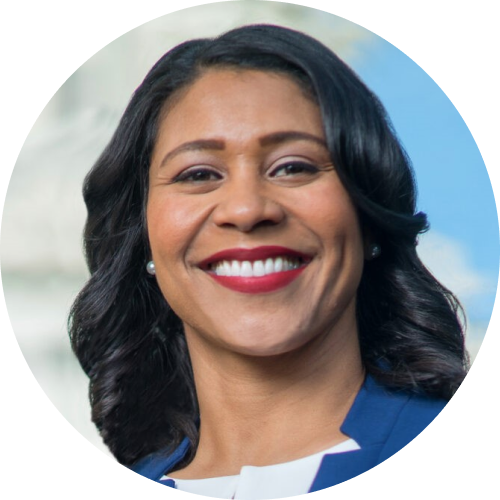
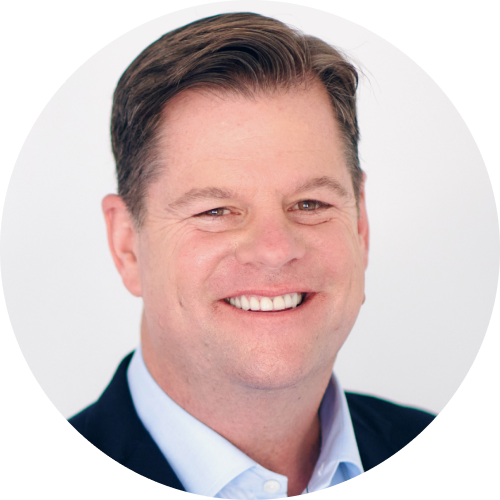
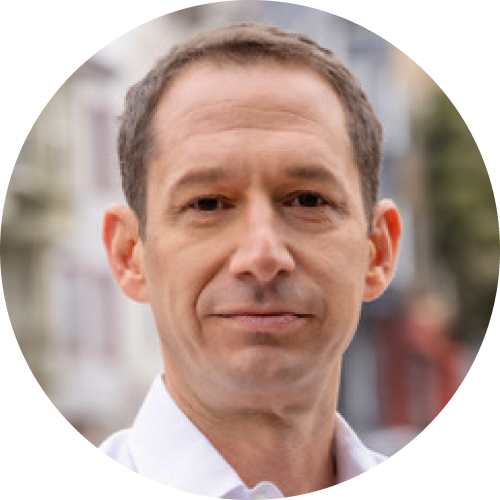
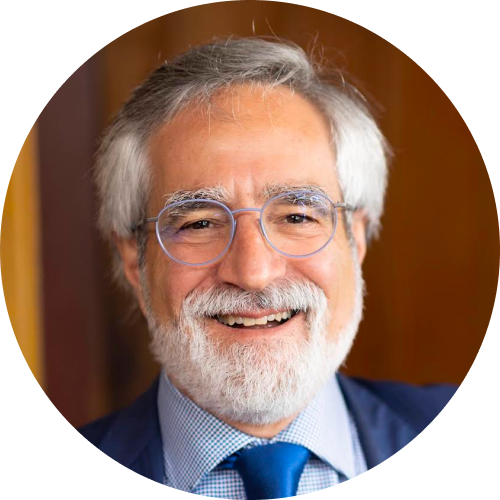
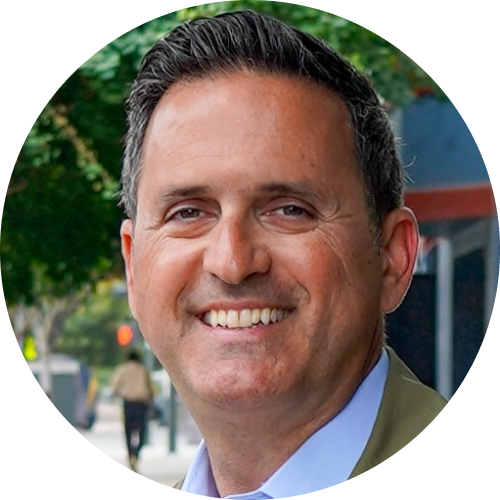
Key Supporters
For Breed
- The San Francisco Democratic Party
- The San Francisco Police Officers Association (SFPOA)
- SF YIMBY
- Scott Wiener, state senator
- The League of Conservation Voters
For Farrell
- San Francisco FireFighters Local 798
- San Francisco Building and Construction Trades Council
- Catherine Stefani, supervisor, District 2
- Chinese American Democratic Club
- San Francisco Deputy Sheriffs Association
For Lurie
- Paul Yep, retired commander, SFPD
- Robert Yick, retired captain, SFPD
- Frank Jordan, former mayor, San Francisco
- John Rahaim, former planning director, San Francisco
- Nadine Burke Harris, former surgeon general, California
For Peskin
- Phil Ting, state Assembly member
- Julie Tang, former judge, Superior Court
- Art Agnos, former mayor, San Francisco
- Mark Leno, former state senator
- SEIU 1021
For Safaí
- United Educators of San Francisco
- SEIU Local 87
- The San Francisco Building and Construction Trades Council
- The National Union of Healthcare Workers (#2)
- UNITE HERE, Local 2
Positions on Key IssuesCandidate summaries are based on interviews with the candidates, questionnaires, statements made at debates and public events, and past news coverage.
What should San Francisco do to reinvigorate the downtown economy following the pandemic slump?
In recent years, City Hall has been tainted by scandals, including the Department of Public Works corruption case. How would you keep corruption out of City Hall and rebuild voter trust?
The recent Supreme Court ruling in Grants Pass v. Johnson has made it easier to clear encampments, but San Francisco still lacks enough beds to meet the current demand. What should we do to meaningfully reduce homelessness?
The current administration has called in the National Guard and CHP to crack down on drug dealing and increase arrests of users, yet overdoses have remained high. What would you do to make more progress in addressing this crisis?
San Francisco needs to add 82,000 housing units by 2031 to meet state housing mandates. What would you do to address the city’s housing crisis?
City Attorney
Top candidate wins seat.
San Francisco County
What does a city attorney do?
The city attorney is a city’s top legal advisor. Staff in the city attorney’s office provide guidance to elected officials during public meetings, help draft ordinances and appear on behalf of the city in legal proceedings.
Candidate Statements
David Chiu
- City Attorney, San Francisco
- Accountability: “As city attorney, I’ve stood up for San Franciscans and held special interests accountable.”
- Drug Crisis: “Made the opioid industry pay $350 million for flooding our city with dangerous drugs.”
- Gun Violence: “Established a Gun Violence Restraining Order program removing firearms from those who threaten public safety.”
- votedavidchiu.com
Richard T. Woon
- Attorney/football coach
- COVID Restrictions: “I got arrested in 2021 while protesting unlawful COVID mandates. In 2022, I led the Patriot Pub Crawl to end the unreasonable, shortsighted and illegal restrictions.”
- Transparency: “I promise to be your ferocious advocate, to defend your rights, protect your city’s funds and finally establish transparent government with checks and balances.”
- Public Safety: “Public safety and law enforcement are my priorities, and I’ll enable them to provide health, safety, prosperity and order.”
- takesfback.com/
Race to Watch
District Attorney
Top candidate wins seat.
San Francisco County
Why does this race matter?
District Attorney Brooke Jenkins is facing reelection after leading a successful recall of her predecessor, Chesa Boudin. Running to replace her is Ryan Khojasteh, a prosecutor who was among more than a dozen staff members Jenkins fired after she took office in 2022.
What does a district attorney do?
The district attorney is the county’s top prosecutor. Lawyers in the district attorney’s office assist with crime investigations, make charging decisions and prosecute cases in court.
Key Candidates
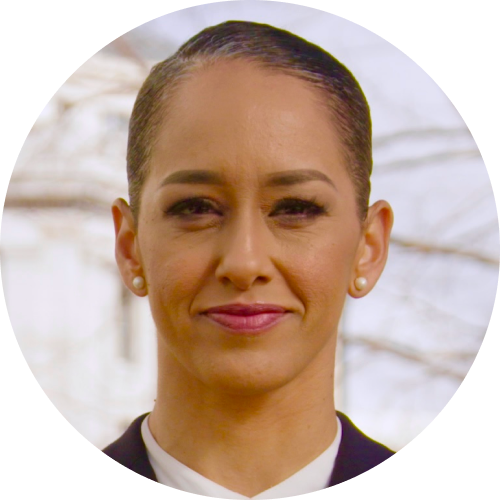
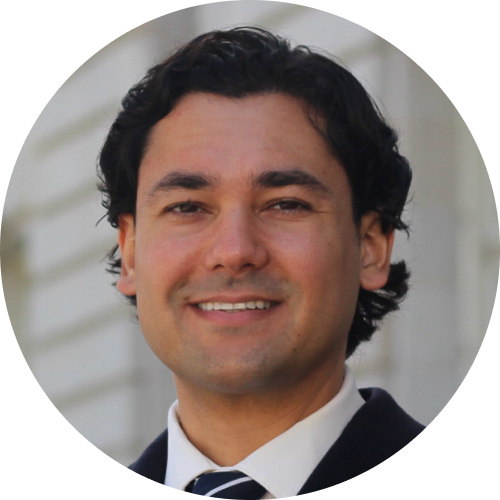
Key Supporters
For Jenkins
- Gavin Newsom, governor, California
- Scott Wiener, state senator
- Alice B. Toklas LGBTQ Democratic Club
- Chinese American Democratic Club
- San Francisco Firefighters Local 798
For Khojasteh
- United Educators of San Francisco
- American Federation of Teachers Local 2121
- National Union of Healthcare Workers
- San Francisco Tenants Union
- Chinatown Community Tenants Association
Positions on Key IssuesCandidate summaries are based on interviews with the candidates, questionnaires, statements made at debates and public events, and past news coverage.
Reported property crime and violent crime has decreased in 2024 compared to 2023, yet many residents continue to feel unsafe. What caused the decrease?
What should San Francisco do to address those ongoing safety concerns?
Felony narcotics convictions have increased in 2024, yet overdose deaths remain at epidemic levels. Is the current approach heading in the right direction? What changes should San Francisco make to further address the crisis?
Data shows convictions have increased in San Francisco since 2022, but jails are often overcrowded. Should the city focus more on diversion and jail alternatives?
Sheriff
Top candidate wins seat.
San Francisco County
What does a sheriff do?
The sheriff’s office is the main law enforcement agency overseeing unincorporated areas of a county. The office also manages the county jail and provides law enforcement assistance in certain county buildings, such as courthouses.
Candidate Statements
Michael Juan
- Police officer
- Experience: “In law enforcement, I have worked for various agencies in San Francisco, with experience in both custody and patrol.”
- Public Safety: “My mission is to help bring back public safety to San Francisco by working with the Police Department, as well as other city agencies and community members.”
- Collaboration: “I will utilize interagency collaboration to provide community-oriented solutions.”
Paul Miyamoto
- Sheriff, San Francisco
- Public Safety: “In my 28 years with the Sheriff’s Office, I have always prioritized the safety of our community, staff, and those in our custody and care.”
- Drug Crisis: “I launched Operation Safe Streets, deploying deputies to patrol and make arrests to help address the city’s drug crisis, while still supporting treatment for those suffering from addiction — including harm reduction, jail-based treatment, and abstinence-based residential treatment.”
- Inmates Rights: “I remain committed to protecting the rights of the incarcerated, and providing opportunities for rehabilitation.”
- reelectsheriffmiyamoto.com
Treasurer
Top candidate wins seat.
San Francisco County
What does a city treasurer do?
The city treasurer is responsible for collecting, safeguarding and investing city funds.
Candidate Statements
José Cisneros
- Treasurer, San Francisco
- Small Businesses: “Founded SF Lends, which helps struggling small businesses secure loans.”
- Income Inequality: “Reduced the burden of fines and fees that disproportionately affect lower-income San Franciscans by introducing payment plans and community service options.”
- Revenue Collection : “My successful safe money management and revenue collection has helped San Francisco by ensuring resources for public safety, health care, education, transit, and other vital services.”
- josecisneros.com
Board of Supervisors, District 1
This is a ranked choice election. If no candidate receives a majority of first-choice votes, an instant runoff will take place. Candidates with the fewest first-choice votes are eliminated and voters who ranked them first have their next-ranked choices redistributed until a candidate receives a majority.
Ranked Choice Results
Top candidate wins seat. This is the latest ranked choice data provided by the Department of Elections office.
San Francisco County
First-Choice Votes
Top candidate wins seat. This result only reflects voters’ first-choice candidate. If votes are redistributed in an instant runoff, they are not reflected in this result.
San Francisco County
What does a San Francisco supervisor do?
San Francisco supervisors draft legislation, often impacting local programs, departments and funding allocation.
Candidate Statements
Jeremiah Boehner
- Entrepreneur
- Ideological Gap: “Since 2000, District 1 has elected four progressives in a row to the Board of Supervisors and for many years the dialogue at City Hall has been between ‘Left and Lefter.’”
- Representation: “Small businesses, homeowners, soccer moms, and taxpayers have no voice or advocate at City Hall, which is why I’m running to become your next supervisor.”
- Budget: “Like you, I’ve witnessed the quality of life deteriorate in the city. The only thing City Hall is successful at doing is throwing more money at problems and the problems only get worse.”
- jeremiahforsf.com
Sherman D’Silva
- Operations manager
- Homelessness: “No more camping or sleeping on streets. Safe shelters and rehabilitation services.”
- Environment: “Acquisition of additional open space. Distribution of recycled water for cleaning and irrigation.”
- Public Safety: “A clean and safe neighborhood is what government is supposed to take care of first — before doing anything else.”
- dsilva2024.com
Marjan Philhour
- Neighborhood business owner
- Public Safety: “The ‘hands-off’ approach to public safety has hurt our neighborhood. We’ve had enough of the failed policies that have affected us all.”
- Police: “As supervisor, I will fully fund the police department so that we can walk down the street without being accosted, assaulted, or worse.”
- Homelessness: “Remove tents and encampments from our sidewalks; support the city attorney in his efforts to overturn the misguided court injunction.”
- votemarjan.com
Connie Chan
- Supervisor, District 1
- Housing: “Secured funding for 100% affordable senior housing at 4200 Geary and an agreement for housing at the Alexandria Theatre.”
- Transportation: “Advocated for traffic, pedestrian and bicycle safety improvements.”
- Accountability: “As budget chair, I have held city departments and the administration accountable and will continue to work to make sure our government is working for us.”
- conniechansf.com
Jen Nossokoff
- Physician assistant
- Challenges: “Our district faces critical challenges — safety concerns, inadequate transportation solutions, and quality-of-life disparities — that demand immediate and innovative solutions.”
- Public Safety: “My vision for the district includes strategic policing and community-driven safety measures to reduce crime and protect residents.”
- Transportation: “Expanding and improving transit options to reduce car dependency and make our streets safer.”
- jen2024.vote
Board of Supervisors, District 3
This is a ranked choice election. If no candidate receives a majority of first-choice votes, an instant runoff will take place. Candidates with the fewest first-choice votes are eliminated and voters who ranked them first have their next-ranked choices redistributed until a candidate receives a majority.
Ranked Choice Results
Top candidate wins seat. This is the latest ranked choice data provided by the Department of Elections office.
San Francisco County
First-Choice Votes
Top candidate wins seat. This result only reflects voters’ first-choice candidate. If votes are redistributed in an instant runoff, they are not reflected in this result.
San Francisco County
What does a San Francisco supervisor do?
San Francisco supervisors draft legislation, often impacting local programs, departments and funding allocation.
Candidate Statements
Moe Jamil
- Deputy City Attorney, San Francisco
- Priorities: “We know what’s important: keeping our streets safe and clean, helping small businesses and protecting the character of our neighborhoods.”
- Public Safety: “Let’s get back to basics to protect and preserve the city we love: safer, cleaner neighborhoods protected by fully-funded police, firefighters, and 911 operators within our existing budget. End open-air drug supermarkets, prevent fencing of stolen goods, arrest and prosecute drug dealers.”
- Housing: “Demand developers put current residents first. Build affordable housing while preserving the character of our neighborhoods and waterfront.”
- moejamil.com
Eduard Navarro
- Urban designer/entrepreneur
- Housing: “We must focus on the city’s design, transit and architecture to build 82,000 units of housing.”
- Neighborhoods: “Preserve and enhance our neighborhoods, while increasing affordability and economic development.”
- Affordability: “We’ll achieve safer, more affordable, healthier, diverse, and thriving neighborhood places where San Franciscans of all incomes can find their place, together with innovation and global influence.”
- navarro.vote
Matthew Susk
- Small-business owner
- Inclusivity: “Susk is deeply rooted in the community he hopes to represent, is focused on revitalizing San Francisco, and will ensure District 3 is a vibrant, inclusive, and thriving part of the city for generations to come.”
- Priorities: “Susk’s campaign is built on three key promises: safe streets (fully fund SFPD), thriving businesses (cut small business fees), and government accountability (quantifiable success metrics).”
- Housing: “With a decade of experience in the private sector Susk has demonstrated his business acumen by … helping thousands of renters become homeowners through a real-estate startup.”
Sharon Lai
- Director, economic nonprofit
- Priorities: “My priorities: strengthen public safety, fully staff our police department, improve pedestrian safety.”
- Housing: “Grow housing options at all income levels in every neighborhood.”
- Education: “Make San Francisco family-friendly with stronger schools, expanded child care, and afterschool and summer programs.”
- sharonlaisf.com
Danny Sauter
- Neighborhood center director
- Businesses: “As the president of my neighborhood association, I worked on legislation to fill empty storefronts.”
- Housing: “As your next District 3 supervisor, I will … make it easier for new homes to be built and strengthen renter protections … Reimagine our downtown with more housing and clean and safe streets.”
- Drug Crisis: “Expand drug treatment programs, arrest drug dealers, and lower barriers to recovery.”
- dannyd3.com
Wendy Ha Chau
- Civil rights attorney
- Statement pending or not available.
Race to Watch
Board of Supervisors, District 5
This is a ranked choice election. If no candidate receives a majority of first-choice votes, an instant runoff will take place. Candidates with the fewest first-choice votes are eliminated and voters who ranked them first have their next-ranked choices redistributed until a candidate receives a majority.
Ranked Choice Results
Top candidate wins seat. This is the latest ranked choice data provided by the Department of Elections office.
San Francisco County
First-Choice Votes
Top candidate wins seat. This result reflects redistributed votes. The results of the instant runoff will change as more first-choice votes are counted.
San Francisco County
Why does this race matter?
Incumbent Supervisor Dean Preston is the only Democratic Socialist on the Board of Supervisors and is seen as one of the furthest left leaders of city government. District 5 also includes the Tenderloin, one of the neighborhoods most affected by the city’s ongoing homelessness and drug overdose crises.
What does a San Francisco supervisor do?
San Francisco supervisors draft legislation, often impacting local programs, departments and funding allocation.
Candidates
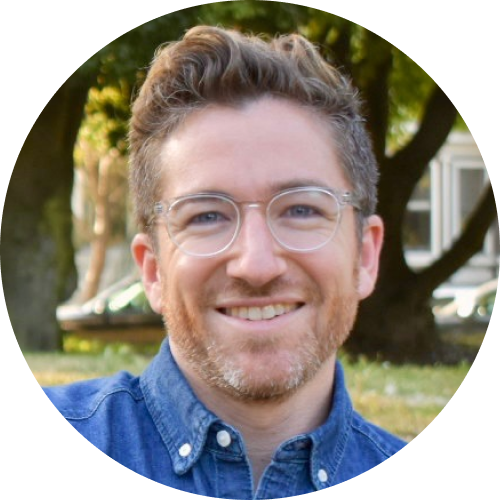

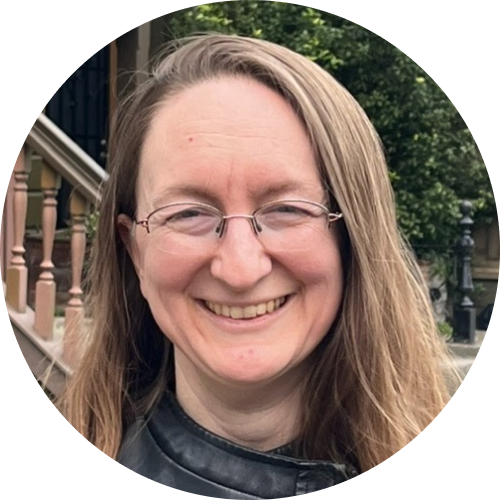
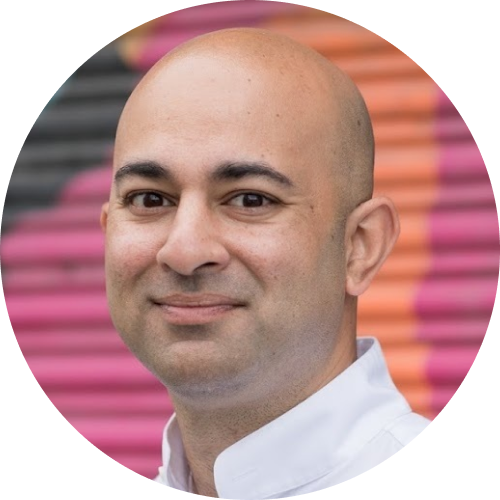
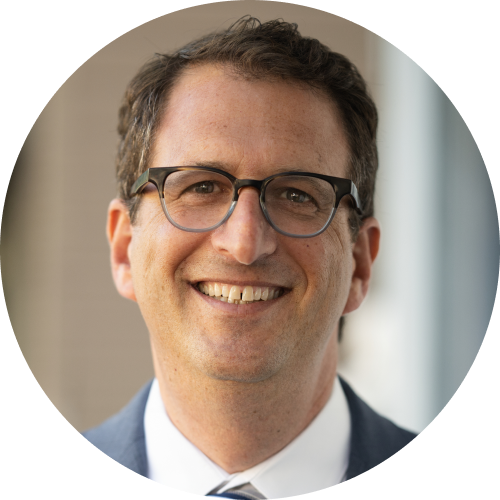
Key Supporters
For Jacobs
- Mark Farrell, former interim mayor, San Francisco
- Alice B. Toklas LGBTQ Democratic Club
- Marina Times
For Jones
- N/A
For Looijen
- Chinese American Democratic Club
- San Francisco Police Officers Association
- Stop Crime Action
For Mahmood
- London Breed, mayor, San Francisco
- Matt Mahan, mayor, San José
- Lateefah Simon, director, BART
- Nor Cal Carpenters Union
- San Francisco Democratic Party
For Preston
- Nancy Pelosi, U.S. representative
- Bernie Sanders, U.S. senator
- California Nurses Association
- San Francisco Tenants Union
- United Educators of San Francisco
Positions on Key IssuesCandidate summaries are based on interviews with the candidates, questionnaires, statements made at debates and public events, and past news coverage.
Mayor London Breed said in July that she aims to make the city’s unhoused population so uncomfortable living on the streets that they have to take city offers of shelter or housing. What role do you think punitive measures and disincentives should play in tackling the homelessness crisis in San Francisco?
State officials report that San Francisco is not building housing at the pace needed to meet the goal of 82,000 new units by 2031. As a city supervisor, how would you work to help the city meet that goal?
What are your thoughts on the debate between harm reduction versus criminalization in addressing the city’s drug overdose crisis?
Board of Supervisors, District 7
This is a ranked choice election. If no candidate receives a majority of first-choice votes, an instant runoff will take place. Candidates with the fewest first-choice votes are eliminated and voters who ranked them first have their next-ranked choices redistributed until a candidate receives a majority.
Ranked Choice Results
Top candidate wins seat. This is the latest ranked choice data provided by the Department of Elections office.
San Francisco County
First-Choice Votes
Top candidate wins seat. This result only reflects voters’ first-choice candidate. If votes are redistributed in an instant runoff, they are not reflected in this result.
San Francisco County
What does a San Francisco supervisor do?
San Francisco supervisors draft legislation, often impacting local programs, departments and funding allocation.
Candidate Statements
Matt Boschetto
- Small-business owner
- Budget: “Balancing a budget and making essential strategic changes are essential to running a small business like ours. I pledge to bring that level of creative problem-solving and accountability to the role as your next supervisor.”
- Public Safety: “My highest priority is restoring public safety to ensure thriving commercial corridors and neighborhoods everyone can call home.”
- Accountability: “Most importantly, what I say now is what I will stick to over the next four years, and I urge you to hold me accountable to that.”
Myrna Melgar
- Supervisor, District 7
- Public Safety: “I’m delivering practical solutions to public safety — adding $25 million to put more police officers in Westside neighborhoods, expanding the community ambassador program to keep West Portal, Ocean Avenue and Inner Sunset safe, and securing funding for license plate readers in crime hotspots like the Twin Peaks Overlook.”
- Housing: “As a housing policy expert, I’ve worked on practical solutions to increase housing opportunities and protect tenants so more people can continue to call the Westside home.”
- Education: “I … invested in programs that improve academic success in our public schools.”
- myrnamelgar.com
Stephen Martin-Pinto
- Firefighter/military reservist
- Commissions: “I will reduce the number of commissions and departments by consolidating and eliminating redundant and unnecessary positions, saving taxpayer money.”
- Public Safety: “I will restore SFPD to full staffing while reforming the SFPD commission to allow them to provide high-quality public safety.”
- Education: “I will advocate for world-class public education. As a Lowell High School graduate, this is very personal to me.”
- stephenmartinpinto.com
Edward S. Yee
- No designation.
- Statement pending or not available.
Race to Watch
Board of Supervisors, District 9
This is a ranked choice election. If no candidate receives a majority of first-choice votes, an instant runoff will take place. Candidates with the fewest first-choice votes are eliminated and voters who ranked them first have their next-ranked choices redistributed until a candidate receives a majority.
Ranked Choice Results
Top candidate wins seat. This is the latest ranked choice data provided by the Department of Elections office.
San Francisco County
First-Choice Votes
Top candidate wins seat. This result only reflects voters’ first-choice candidate. If votes are redistributed in an instant runoff, they are not reflected in this result.
San Francisco County
Why does this race matter?
For decades, San Francisco’s District 9 — which includes the Mission, Bernal Heights and Portola neighborhoods — has been a hub of labor and immigrant activism. In a crowded race to succeed termed-out Supervisor Hillary Ronen, four candidates have drawn support from various influential community groups in the district.
What does a San Francisco supervisor do?
San Francisco supervisors draft legislation, often impacting local programs, departments and funding allocation.
Key Candidates
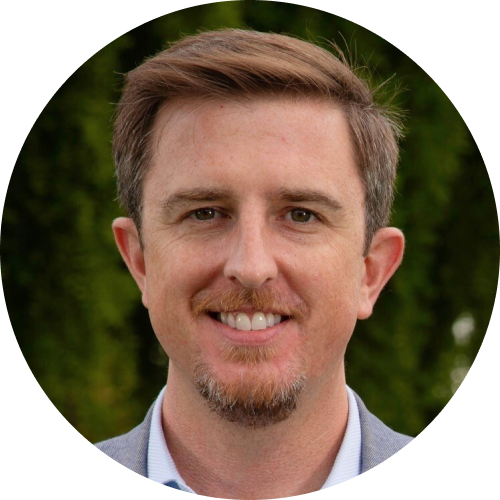

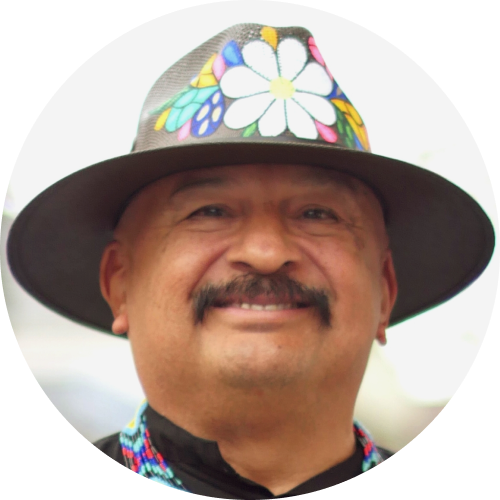
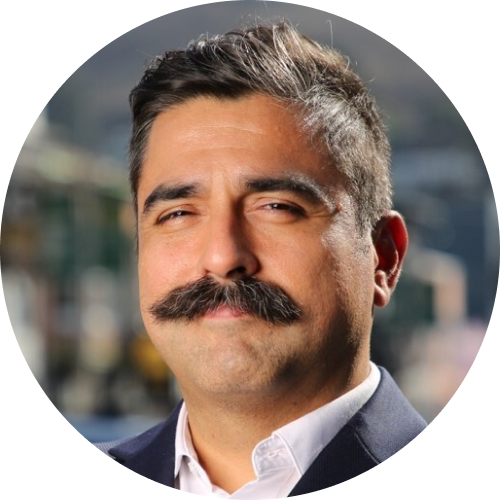
Key Supporters
For Chandler
- Rafael Mandelman, supervisor, San Francisco
- Chinese American Democratic Club
- San Francisco Democratic Party (ranked #1 choice)
- San Francisco YIMBY
- Together SF Action
For Fielder
- Aaron Peskin, supervisor, San Francisco
- Hillary Ronen, supervisor, San Francisco
- Democratic Socialists of America, San Francisco Chapter
- San Francisco Tenants Union (ranked #1 choice)
- SEIU 1021
For Hernandez
- Dolores Huerta, civil rights and labor activist
- Fiona Ma, state treasurer, California
- Myrna Melgar, supervisor, San Francisco
- Alice B Toklas Democratic Club
- United Educators of San Francisco
For Torres
- Bevan Dufty, member, BART Board of Directors
- Sandra Lee Fewer, former supervisor, San Francisco
- Mark Leno, former state senator
- Juanita MORE!, LGBTQ activist
- Laura Thomas, member, San Francisco Entertainment Commission
Positions on Key IssuesCandidate summaries are based on interviews with the candidates, questionnaires, statements made at debates and public events, and past news coverage.
KQED has spoken to dozens of small business owners throughout the district who say that fewer people are supporting their businesses. What do you think is needed to make District 9 a popular shopping destination again?
Since 2020, street vending at the 16th and 24th Street BART plazas has grown significantly. This includes folks selling food, crafts and clothing – but there’s also the presence of individuals that sell stolen goods and drugs. In response, city officials, including Supervisor Ronen, have tried multiple strategies including setting up fences, increasing police presence and imposing a street-vending ban. What is your vision for these public spaces?
A recent Supreme Court ruling makes it easier for cities to fine or jail unhoused people for sleeping on public property, even if no alternative shelter exists. Since that ruling, city officials have ramped up sweeps of homeless encampments throughout San Francisco. Do you think increasing sweeps is a good decision?
What should be the role of SFPD in District 9? What can be done to improve public safety and at the same time take into account concerns about over-policing?
A significant number of District 9 residents are neither citizens nor fluent in English. If elected supervisor, how would you hold yourself accountable to those who cannot vote for you or speak English?
Board of Supervisors, District 11
This is a ranked choice election. If no candidate receives a majority of first-choice votes, an instant runoff will take place. Candidates with the fewest first-choice votes are eliminated and voters who ranked them first have their next-ranked choices redistributed until a candidate receives a majority.
Ranked Choice Results
Top candidate wins seat. This is the latest ranked choice data provided by the Department of Elections office.
San Francisco County
First-Choice Votes
Top candidate wins seat. This result only reflects voters’ first-choice candidate. If votes are redistributed in an instant runoff, they are not reflected in this result.
San Francisco County
What does a San Francisco supervisor do?
San Francisco supervisors draft legislation, often impacting local programs, departments and funding allocation.
Candidate Statements
Chyanne Chen
- Parent/nonprofit director
- Workers’ Rights: “For over 20 years, I’ve worked for San Francisco’s everyday people as a SEIU union organizer and community advocate. I pushed to empower workers, strengthen language access, promote cross-racial solidarity and improve services for families.”
- Public Safety: “My priorities as supervisor: safer streets with increased community patrols and ambassadors.”
- Housing: “More affordable housing for essential workers, working families and seniors.”
- chyannechen.com
Ernest “EJ” Jones
- Community organizer
- Housing: “As affordable housing director with Bernal Heights Housing Corporation, I advocated for policies supporting families staying in San Francisco.”
- Collaboration: “I understand the importance of building strong community connections and working together to tackle the challenges ahead.”
- Priorities: “As your supervisor, I’ll address safety, housing, our local economy, transit, and cleanliness through collaboration.”
- ejforsf.com
Michael Lai
- Early education director
- Child care: “During COVID, I raised $17.9 million to start 30 day cares that include teacher housing.”
- Public Safety: “Staff up the police department, arrest fentanyl dealers, stop illegal dumping, and get homeless people mental health beds and treatment.”
- Corruption: “Root out corruption, reduce bureaucracy, and measure results for nonprofit contracts.”
- votemichaellai.com
Jose Morales
- Salesman
- Crime: “I’m fed up with the rising crime that frightens our elders and the addiction crisis plaguing our streets.”
- Affordability: “It’s heartbreaking to witness businesses closing down and families being forced out due to soaring prices.”
- Collaboration: “Together, we can turn things around and create a brighter future for everyone. Let’s work together to make our community safer, more affordable, and full of opportunity.”
Adlah Chisti
- Policy analyst/planner
- Public Safety: “I’m running for supervisor for District 11 to ensure our children, families, and seniors feel safe, have job and housing opportunities, and enjoy beautiful parks and libraries.”
- Experience: “Several local supervisor campaigns including campaign manager for Supervisor Myrna Melgar’s campaign in 2020. Policy analyst, Vice President Kamala Harris 2016 U.S. Senate campaign.”
- Education: “Education policy experience over 10 years. Teacher, eighth grade, James Lick Middle School.”
Roger Marenco
- Organizer/transit operator
- Crime: “Backwards-thinking politicians believe that giving more neverending second chances and more of our tax dollars to the homeless, to drug users, and to criminals, will reduce crime.”
- Budget: “We need to open the books in City Hall and expose where the money is going, so that we can start fixing this broken system.”
- Public Safety: “It’s time to clean the streets, fix the potholes, sanitize the buses, put students in school, workers to work, and criminals in jail.”
Oscar Flores
- Project engineer
- Integrity: “I am running for District 11 supervisor because I have the courage to say and do what is necessary.”
- Accountability: “As a Christian, I have a duty to challenge leadership that only brings decay, suffering, and a lack of means to thrive.”
- Justice: “My approach is one of love, firmness, justice, and peace.”
To learn more about how we use your information, please read our privacy policy.
Signed up.
More Results
See results for all elections on the San Francisco ballot.
Have a correction? Contact voterguide@kqed.org.